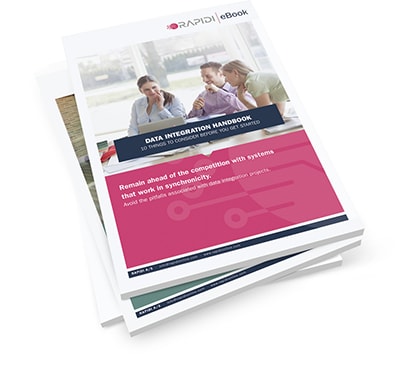Do you absolutely need to have both ERP (Enterprise Resource Planning) and CRM (Customer Relationship Management)? Isn’t it enough to use just one of them? As a stakeholder in a business, you're best placed to understand the value you get from ERP and CRM systems, and whether you need both of your current solutions.
Well, the two systems are similar in many ways. They serve the same final purpose: they are there to help companies achieve greater control and increase profitability. They are also there to give companies the power to control their success in today’s market. There are a number of differences between the two. One of the big differences is that an ERP system follows a well predefined process while a CRM system is much more a roadmap of routes that can be triggered by different events such as a specific prospect feedback.
Also, although ERP and CRM serve the same purpose, they do it in completely different manners, this is because their core functionalities are completely different. In order to understand how you can best benefit from each system I believe that you should start by taking a look at them as separate, stand-alone systems. Why? Because then it will be easier for your to see how ERP and CRM each play a role in improving efficiency and increasing sales. So, before we go any further, let’s go back to basics…
What is CRM?
WHat is a CRM system? In their simplest form - CRM systems focus on the customer-relationship processes and data. That is pretty much the only thing they focus on. And frankly they do it pretty well, managing information and capturing all relevant details for your company.
Your CRM system registers all interactions you have with your customers, so you can then utilize this information all across the board, from your Salesforce to accounting to management. CRM helps you efficiently manage customer information, and build better customer relationships. This results in helping you to identify trends, increase customer loyalty and, ultimately, revenue, achieve higher revenue
What is ERP?
Where CRM is centered on customer activities, ERP focuses on the entire business. ERP is basically made for improving the efficiency of processes through the sharing of unified information across your entire business – spanning from accounting to warehouse, and all the way to inventory and fulfillment.
Using this technology helps you identify when problems might occur. This helps you always be ready to take corrective actions and always have a clear and accurate picture of your business.
Similar and different, but mostly complementary – for the benefit of your business
Both CRM and ERP allow companies to quickly share standardized information and data throughout an organization. Executives, managers, and employees all enter information into the systems, creating a real-time, enterprise-wide snapshot. Problems in any area will automatically create alerts in other affected areas, allowing employees to efficiently and rapidly identify any issues. This allows relevant departments to begin planning for issues before they become a problem in that department.
Differences between CRM and ERP
Although ERP and CRM work together to achieve a shared outcome, they may have many differences and use different means to the same goal. For the most, ERP focuses on reducing overhead and cutting costs. CRM on the other hand works on producing greater sales volume and thereby increasing revenue and profit.
To put in shortly, CRM will fuel your business with new business, and ERP will allow you to manage and drive your business around obstacles, allowing you to deliver according to the promise made to your customer, and do it in a profitable manner. Therefore, having both CRM and ERP is, in my opinion, the most efficient way to run a business.
Get the most out of CRM and ERP – integrate them
Many companies have understood the benefits of implementing both CRM and ERP solutions for their day to day business operations. However, left as stand-alone systems, CRM and ERP solutions often become data silos in organizations, and these organizations fail to capture a full 360 degree customer view. Lack of integration between ERP and CRM systems creates information gaps that can damage a company’s operations. For example, without integrated systems your sales people might not be aware of a customer’s credit limit, resulting in granting credit to a customer that should not have it.
It is easy to consider similar examples of how a lack of transparency in your ERP and CRM systems for your team can negatively impact day-to-day operations, or result in missing lucrative opportunities.
There are indeed many benefits of integrating ERP and CRM, including efficiency gains and return on your investment in both platforms. In my opinion, the integration is your guarantee that all departments in your company are able to work together effectively.
Extending the ERP and CRM capabilities with integrations
In order to create a comprehensive, top-down 360 degree view on clients companies can integrate their CRM system with additional data sources. They can gather data from Iot and social media to track behavior, and from ERP to track sales history and other financial data. The ERP system most typically benefits from being integrated with e-commerce systems, Product Information Systems and other operational systems. So, often besides integrating ERP and CRM together, there are also a number of other integration points, and the trend is that the number of possible integration points with CRM is increasing with all the data sources already available as a service in today’s market.
How do you then integrate?
Nowadays, you can easily find very cost-effective cloud-based solutions that allow fast, automated and secure ERP and CRM integration. These ERP and CRM integration solutions run as a service, oe SaaS - and implementation time is limited to 3-10 man days in the large majority of cases; making it both possible and affordable to move forward with a full integration of your ERP and CRM solutions and reap the full benefits of your ERP and CRM investments.









